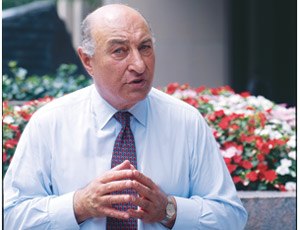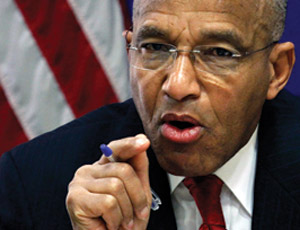The three-year-long civil and criminal investigation of Louis Berger Group’s billings for federal aid and reconstruction projects came to light on Aug. 9 just as the federal government was ramping up audits and investigations of Afghanistan and Iraq reconstruction contracts looking for possible improprieties.


But the Berger investigation by the Dept. of Justice began long before the reconstruction probes by the special inspector general for those two countries and applies to Berger’s billing method for U.S. Agency for International Development work over a much longer period of time in several countries, says a spokeswoman for the company. The Afghanistan and Iraq crackdown only adds to contractors’ problems of working in war-ravaged, impoverished countries, elevating what’s known as compliance risk—and exposing them to potentially heavy penalties.
“Iraq and Afghanistan can be scary environments for U.S. government contractors for a variety of reasons,” according to a report by law firm Crowell and Moring, Washington, D.C., which represents firms that do business with the government.
Arnold Fields, the special inspector general for Afghanistan reconstruction, for example, said in January that his office is investigating 38 criminal cases involving military personnel and contractors ranging from contract and procurement fraud to bribery and theft.
In July, Fields told a congressional subcommittee that, as part of the U.S. effort to increase Afghanistan’s capacity to handle rebuilding without U.S. help, his office is conducting an audit to see how the U.S. can help Afghanistan detect and deter corruption on its own. Separately, the SIG office has hired three former Dept. of Justice prosecutors and set them up as a unit within the agency to prosecute reconstruction cases.
As the prosecution of foreign nationals is exceedingly complex, most cases are lodged against Americans. “For all of the discussion about fraud and corruption in wartime contracting, and all of the allegations that the local governments in Afghanistan and elsewhere are corrupt, the majority of criminal cases coming out of Iraq and Afghanistan have involved U.S. government contracting officials and contracting personnel of U.S. contractors working abroad,” states the Crowell & Moring report.
Being ensnared in malfeasance by local subcontractors isn’t the least of the risks faced by contractors. The government’s practice has been to hold prime contractors responsible for subcontractors, the report says.
Should the investigation of Berger lead to charges, the company could face debarment by key federal government clients. For now, Berger continues to win and perform aid and federal contracts as it did before, say spokeswomen for Berger and USAID. Not long after the invasion of Afghanistan in 2002, Morristown, N.J.-based Berger Group won a $300-million contract from the USAID. Berger seemed to join a small group of companies relied on by U.S. military and aid agencies.
As the war dragged on, critics blasted the effectiveness of the reconstruction and the companies involved. Separately, the Justice Dept. opened a probe into Berger’s overhead billings and conducted a search of the company’s offices The prosecutors targeted two former Berger employees and Berger Group’s holding company chairman, Derish Wolff, the nephew of the company’s founder. They are the subject of criminal and civil investigations, according to correspondence written by Dept. of Justice officials.
The Justice Dept. sought Wolff’s resignation, and Berger Group reportedon Aug. 23 that Wolff no longer was employed. Wolff himself could be held personally liable for triple damages of each specific charge under the False Claims Act, in addition to a civil penalty of up to $11,000 per claim, wrote Rod J. Rosenstein and Michael A. DiPietro, U.S. attorney and assistant U.S. attorney, respectively, for the northern division of Maryland, in a letter to Wolff’s lawyers.
To recover fines that may be levied against the company, the U.S. attorney has asked Berger Group to escrow the money that would be needed to start buying out Wolff’s 27% share of the company. The investigation became public when Wolff sued in federal district court in Newark to prevent the U.S. attorney from dictating that funds be escrowed.
The center of the Justice Dept.’s investigation appears to be inflated overhead charges, a familiar yet complex part of cost-plus contracting. The high overhead required to sustain foreign employees in Afghanistan and Iraq has been a favorite topic for reconstruction critics. Audit reports by the Iraq and Afghanistan IG offices, reviewed by ENR, say comparatively little about overhead.
The Berger investigation, however, “is focused upon the cost accounting methodology that [Louis Berger Group] had in place prior to its work in Afghanistan and Iraq,” says the Berger spokeswoman. “The ongoing investigation does not relate specifically to LBG’s work in Afghanistan or for USAID.”
The danger of working under wartime conditions, although separate from the Justice Dept. investigation, are never very far from mind among Berger staff. Since 2002, says Berger’s spokeswoman, its USAID-funded programs have suffered about 200 killed, 300 wounded and more than two-dozen kidnapped, which includes employees, subcontractors and security providers.


Post a comment to this article
Report Abusive Comment